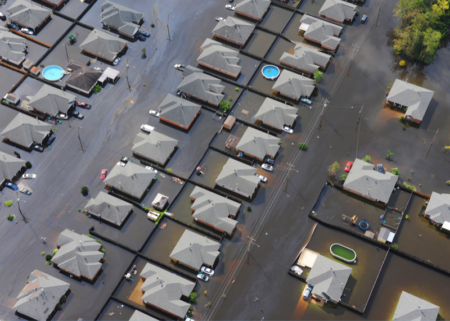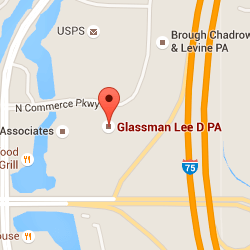Blog
What You Need To Know About Flood Insurance In Florida

If you are a homeowner, renter, or business owner in Florida, you are at greater risk of your home or place of work being flooded than if you lived in some other parts of the country. Florida is prone to flooding as a result of hurricanes, tropical storms, and heavy rainstorms.
Your homeowners or renters insurance policies likely do not cover flood insurance. You need to purchase flood insurance separately or as an add-on.
Buyers Beware
Although homes in Florida are known to flood, Florida law DOES NOT require sellers to disclose flood risk or flood history to potential buyers. When you are doing a walk through or having an inspection done, be on the lookout for signs that the property may have flooded in the past or may be likely to flood in the future.
According to Natural Resources Defense Council (NRDC), Florida courts have ruled that a seller must disclose facts about the property or conditions that aren’t visible to the naked eye that may impact its value or desirability. However, there have been some exceptions, and it remains unclear if flooding falls underneath this law.
Florida Realtors give sellers the option of filling out a voluntary disclosure form that asks sellers if:
- They are aware of any past or present drainage or flood problems affecting the property or adjacent properties;
- They are aware of any portion of the property being in a special flood hazard area;
- The property requires flood insurance;
- Any improvements, including additions, are located below the base flood elevation;
- Such improvements have been constructed in violation of local flood guidelines.
Because of flooding risk, it is very rare to find a house with a basement in Florida. However, some homes do have basements. Pay particularly close attention to those that do.
Palm Beach, Broward, and Miami-Dade Counties publish flood zone maps annually to determine which areas are at more risk than other neighborhoods. This zoning can be used to help determine where you feel safe purchasing or renting a home and the flood insurance rate you are quoted. The maps are also referred to as Flood Insurance Rate Maps (FIRMs).
While house hunting, take into consideration the proximity to waterways, such as the Atlantic Ocean, the Intracoastal, lakes, and canals. The farther from water you live, the less likely your property is to flood, although flooding can happen anywhere, including low-risk zones. According to Federal Emergency Management Agency (FEMA)’s National Flood Insurance Program (NFIP), more than 40-percent of flood insurance claims made by policyholders from 2014 to 2018 were filed by homeowners outside of high-risk areas. Those who live in moderate to low risk areas are eligible for a less expensive Preferred Risk Policy (PRP) to protect their building and contents.
If you rent your home, your landlord more than likely has flood insurance to protect the building. However, it is up to the tenants to get their own content coverage. Contents-only coverage is available in the marketplace.
Another way to avoid flooding is to live in a home on stilts or by avoiding the first or penthouse floors of a high-rise condominium or apartment building. Places can flood from the ground up, or the top down if there is a leaking roof.
Look at the drainage solutions that are in place on your property and in your neighborhood. During heavy rainfall, inches of rain can come down in a matter of minutes or hours in Florida and the drainage system on your driveway, yard, and street needs to be able to keep up. If you have a pool in your backyard, consider lowering the water level prior to a major forecasted storm to prevent your pool from overflowing and causing major problems.
Flood Insurance 101
NFIP is a great resource to find an insurance agent and get an affordable quote. Just one inch of water in a home can cause a whopping $25,000 worth of damage!
There are two types of flood insurance–building insurance and content insurance.
Building insurance covers:
- Electrical and plumbing systems
- Furnaces and water heaters
- Refrigerators, cooking stoves, and built-in appliances like dishwashers
- Permanently installed carpeting
- Permanently installed cabinets, paneling, and bookcases
- Window blinds
- Foundation walls, anchorage systems, and staircases
- Detached garages
- Fuel tanks, well water tanks and pumps, and solar energy equipment
Content insurance covers:
- Personal belongings such as clothing, furniture, and electronic equipment
- Curtains
- Washer and dryer
- Portable and window air conditioners
- Microwave oven
- Carpets not included in building coverage (e.g., carpet installed over wood floors)
- Valuable items such as original artwork and furs (up to $2,500)
To get reimbursed for your water-damaged property and belongings, you need to prove its value to the insurance adjuster. Keep original receipts to show worth and purchase prices. Keep receipts and documentation in a waterproof box on a high shelf, so the papers are not another casualty of the flood. Take photos of the damage prior to cleaning up. Insurance also requires that you make every effort to mitigate the damage. Dry the flooded area as quickly as possible and do whatever is within your means to prevent or remediate mold, which can begin growing quickly wherever there is wetness and moisture.
Federal Aid
Don’t rely on federal disaster assistance. It’s better to have flood insurance.
Federal disaster assistance only becomes available on the rare occasion that the president declares a disaster. Most flooding episodes do not qualify for a presidential declaration. Plus, federal assistance is oftentimes a loan that needs to be paid back with interest.
Some flood victims of natural disasters can receive a FEMA disaster grant of $5,000 on average per household. But, that’s not nearly enough to recoup losses. The average flood insurance claim was upwards of $40,000 in 2018!
Flood insurance doesn’t have to be repaid and the insurance policy helps you fully recover. Federal aid is meant to kickstart the recovery process, but not take you all the way to the finish line.
If you need legal assistance filing a flood insurance claim or getting the money you believe you are owed from your insurance company, please call The Glassman Legal Group at (954) 915-8800.
